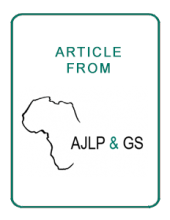Land Library
Welcome to the Land Portal Library. Explore our vast collection of open-access resources (over 74,000) including reports, journal articles, research papers, peer-reviewed publications, legal documents, videos and much more.
/ library resources
Showing items 1 through 8 of 8.Understanding the land market is crucial when analyzing the spatial dynamics of cities. Spatial models, which are widely used to describe the growth of cities, are underdeveloped in Africa, due in part to the lack of urban data and/or the difficulty of collecting it.
This paper analysed land governance and crop commercialization in Nigeria. General Household Survey (Living Standard Measurement Survey) panel data for the post-planting and post-harvest periods of 2015 and 2016 cropping seasons were used.
Rwanda has undertaken a land registration and titling program since 2008 with a registration of 10.3 million land parcels in 2013.
Population increase influence the dynamics in land market and agitate land access competition, which results into exclusion of some individuals. Inequality is evident in majority of Tanzanians women, youth, children and elderly.
The main objective of this research is to investigate land market values, urban land policies and their impacts on urban centers in Rwanda.
This policy brief summarizes the main findings and recommendations of qualitative and quantative research on urban land markets in Rwanda. The main objective of this research is to investigate land market values, urban land policies and their impacts on urban centers.
Since mid-1970s, a great number of rural-urban migrants are converging towards Kigali, the capital of Rwanda, and secondary towns, putting strain on land, especially of urban fringes.
According to recent UN estimates, 924 million people - nearly one out of three urban dwellers – were living in slums in 2004. Of these, 874 million are from low and middle-income countries (Millennium Project, 2005).





